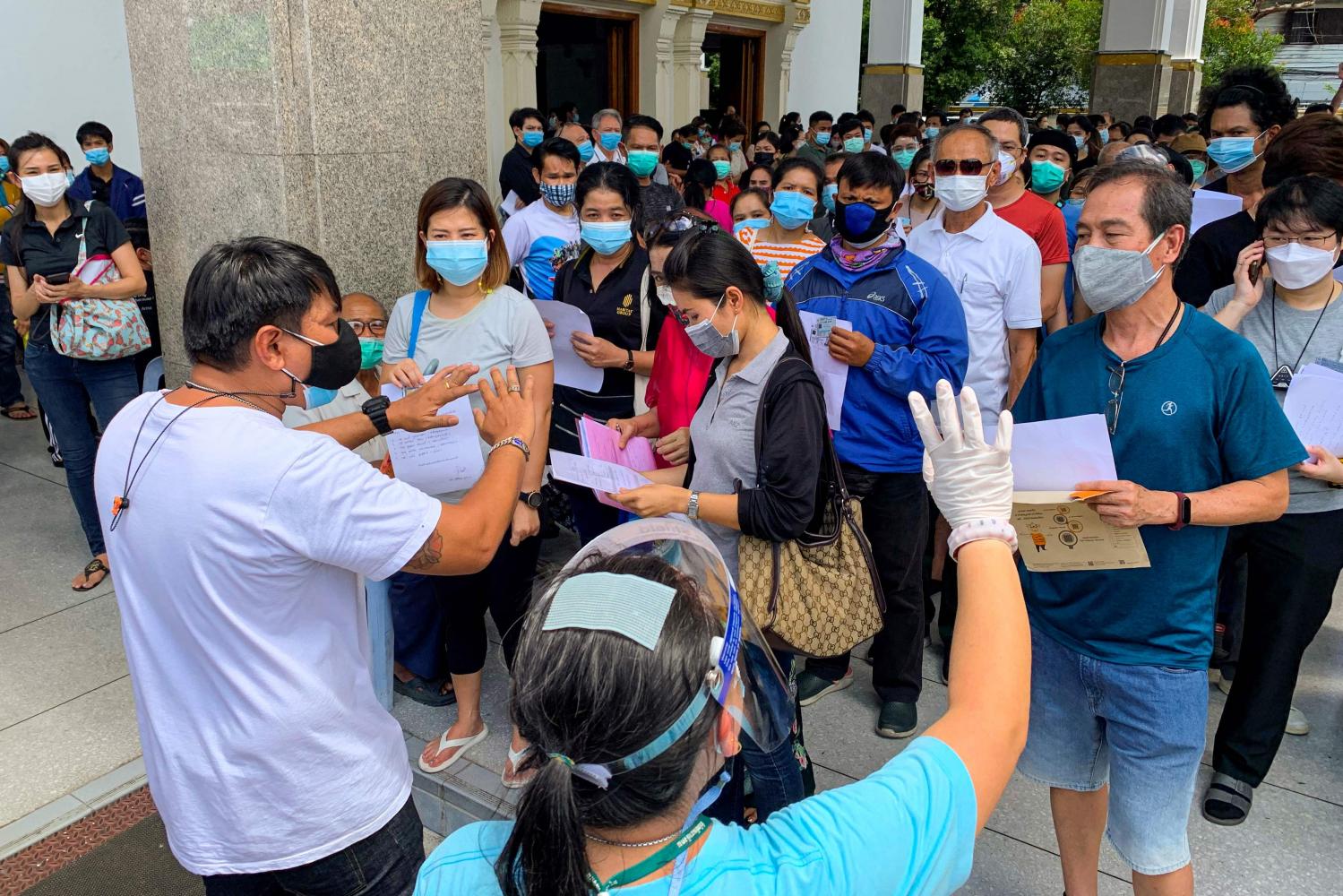
Thailand should try its best to curb a fourth wave of Covid-19 infections, especially preventing the spread of the Indian variant which might enter the country via the Myanmar border. Otherwise, additional borrowing to fight the new outbreak and rehabilitate the economy will be inevitable, warned Kobsak Pootrakool, former minister to the Prime Minister's Office.
The government will have a limited budget to fight a new Covid-19 outbreak as current public debt is getting close to the ceiling set by the state's fiscal sustainability framework, which caps public debt at 60% of GDP, said Mr Kobsak, now senior executive vice-president of Bangkok Bank.
According to Mr Kobsak, a fourth wave will cause a more drastic effect on the Thai economy, forcing the government to borrow more to rehabilitate the economy.
Mr Kobsak said the priority of the government should be to tackle the third wave of infections by speeding up the administration of vaccines, reopening the country for tourism and rolling out measures to stimulate the economy and investments.
"If the government succeeds in tackling the third wave of [Covid-19] infections and vaccinations go ahead as planned, the reopening of the country for tourism starting with Phuket is possible."
He also advised the government to apply its vaccination management plan for Phuket to the rest of the country as well, saying that Phuket can now administer seven million doses in seven days.
Cooperation from the private sector to provide software needed for the vaccination process and public relations will be necessary, he added.
Amid the current economic crisis, government borrowing is instrumental in shoring up the economy. However, the 60% ceiling set as part of the fiscal sustainability framework is based on normal economic conditions, Patricia Mongkhonvanit, the Public Debt Management Office (PDMO) chief, admitted recently.
Last year, the government had issued a royal decree to borrow 1 trillion baht in order to revitalise the virus-ravaged economy.
However, even with the decree, Thailand's public debt-to-GDP ratio is expected to stay below the 60% ceiling -- estimated to be 57% at of the end of fiscal 2021 -- in late September this year.
Thailand has managed to keep public debt to GDP figure below the sustainability framework ceiling for decades by leaving space in the fiscal policy for the government to buffer against economic shocks.
The public debt level was around 40% of GDP before the pandemic emerged in early 2020.
A review of the government's fiscal sustainability framework is conducted every three years and a check-up is due this year.
Wanchat Suwankitti, deputy secretary-general to the National Economic and Social Development Council (NESDC), said that as of May 3, the government had already endorsed 762.90 billion baht for 283 projects under the 1-trillion baht loan decree.
With the 237 billion baht that remains, the government will have room to handle the third wave of infections, he said.
